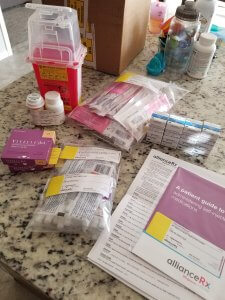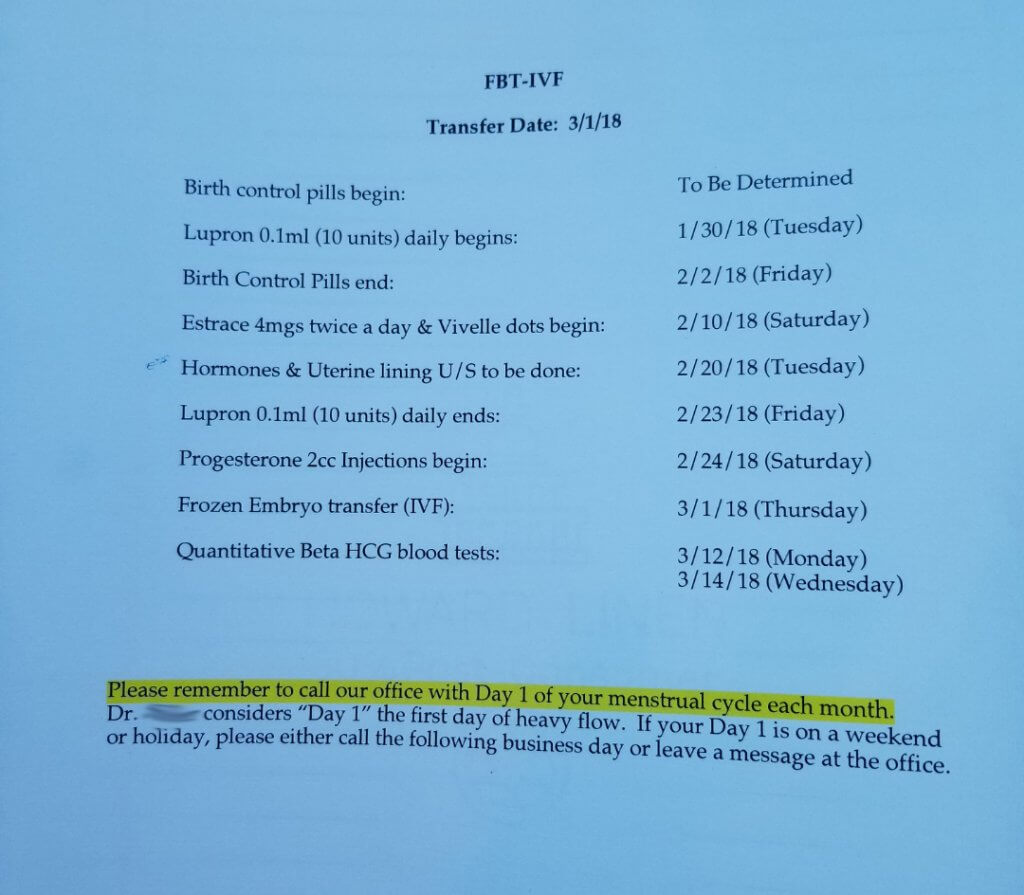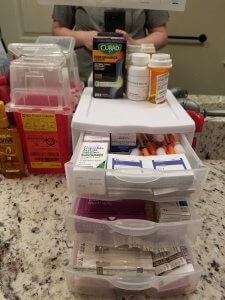Considering surrogacy as a way to build your family is a gigantic decision. It’s not one to rush into overnight — but how do you know that surrogacy is really right for you?
Every intended parent’s journey to surrogacy will be different, but there are a few general steps that our surrogacy specialists recommend every hopeful parent take beforehand. In our experience, those who are best prepared for the surrogacy process have usually completed these steps:
Step 1: Explore all of your family-building options.
Surrogacy is a complicated process, and it’s not one that an intended parent jumps to right away. Those struggling with infertility have many other assisted reproduction methods before gestational surrogacy, and it’s likely that a reproductive endocrinologist will recommend some of the less invasive and cheaper options first. These could include IUI, IVF and more.
On the other hands, LGBT intended parents considering gestational surrogacy should also consider adoption. Both are very different processes, but they are viable options for those looking to add to their family.
In order to know what is best for your family, you must fully understand all of the options available to you. Fortunately, the specialists at American Surrogacy are well-experienced in both the gestational surrogacy and adoption processes. You can call them at 1-800-875-2229(BABY) to learn more about the pros and cons of each.
Step 2: Be honest with your partner.
As you explore your family-building options, you need to ask yourself hard questions — and be honest with your partner when it comes to how you’re feeling.
If you’ve struggled with infertility, it’s important that you have completed grieved your dreams of a pregnancy experience before starting gestational surrogacy. Intended parents who start the surrogacy process without doing so often have to face their complicated emotions later on — which can negatively impact their relationship with their gestational carrier.
If you’re not ready to move on from infertility treatments — or if you’re uncomfortable with the surrogacy process — you need to tell your spouse. Entering into such a complicated process without being fully committed is a bad idea, and it will come back to hurt you in the end. If you’re coping with infertility, you may feel like your time to have a biological child is slipping away, but you should never rush into the surrogacy process until you and your spouse are 100 percent emotionally ready.
Step 3: Do your research.
If you think gestational surrogacy may be right for your family, research is your next step. There are a lot of options in a surrogacy journey — genetic relationship, cost, location and more — and intended parents should have a general idea of what they want before getting started.
Speak with surrogacy professionals and your reproductive endocrinologist to determine what this process may look like for you. Check out information from sites such as Surrogate.com to learn more about every aspect of the process.
At the end of your research, you should be able to answer these questions with some confidence:
- Do you want to pursue gestational or traditional surrogacy?
- Do you want to work with a surrogacy agency or complete an independent surrogacy?
- Do you have a carrier in mind, or do you still need to find one?
- What kind of program can you afford?
- What are you looking for in a surrogate?
- What surrogacy options are available in your state? Do you need to go out-of-state for a safe and ethical surrogacy?
You can also get surrogacy updates through our Instagram.
Step 4: Get your funding in place.
One of the biggest hurdles for intended parents is the cost of gestational surrogacy. It’s no secret: Surrogacy is expensive. But it’s for good reason — there are a lot of complicated moving parts that require expertise and professional assistance.
As you research your surrogacy options, research your estimated surrogacy costs, too. Being aware of your financial situation beforehand will come in handy when it comes to paying your surrogacy expenses later on. When you know how much you can expect to pay, you can start fundraising and exploring your other financing options.
Learn more about affording surrogacy here.
Step 5: Interview surrogacy professionals.
If you’ve decided that gestational surrogacy is right for your family, you only have one more step before you officially get started! Finding the right surrogacy professionals for your surrogacy goals is the final thing to do.
There are a lot of choices when it comes to surrogacy professionals. You can choose to complete an independent surrogacy with only a lawyer and a fertility clinic, or you can work with an experienced surrogacy agency every step of the way. Which you choose will be up to you. How much responsibility do you wish to take during your surrogacy process? How comfortable are you with the requirements of the process?
We encourage all intended parents — whether they’re considering an independent surrogacy or an agency-assisted surrogacy — to speak with a surrogacy agency such as American Surrogacy. That way, you can learn more about the services an agency can offer and what steps you would need to take without professional assistance. Only then can you can make the best choice for your family.
Get answers to all of your questions about surrogacy by contacting our specialists today. We are here to give you all the information you need, whatever decision you end up making for you and your spouse.






 I used a cheap Walmart drawer container to store my medications. I’m very type A, and it helped organize things. I was constantly getting new shipments and refilling it. I also downloaded blank calendar pages to fill in what medications I took each day. I marked them off as I took them. It was taped to my bathroom mirror.
I used a cheap Walmart drawer container to store my medications. I’m very type A, and it helped organize things. I was constantly getting new shipments and refilling it. I also downloaded blank calendar pages to fill in what medications I took each day. I marked them off as I took them. It was taped to my bathroom mirror.




